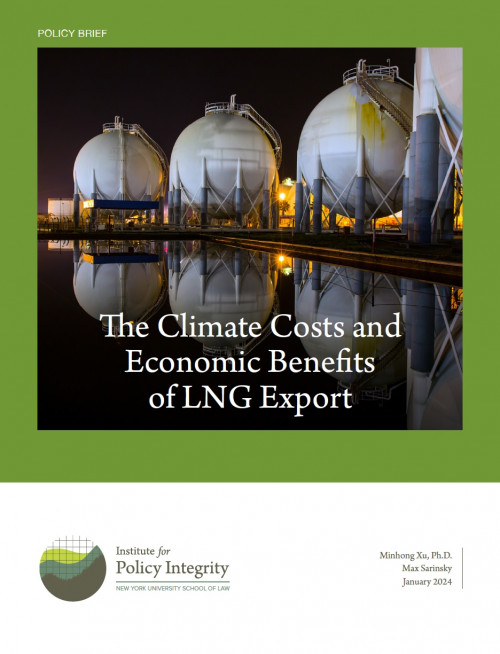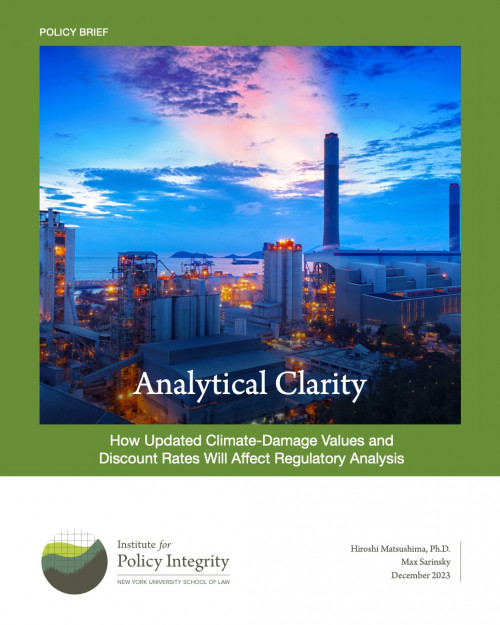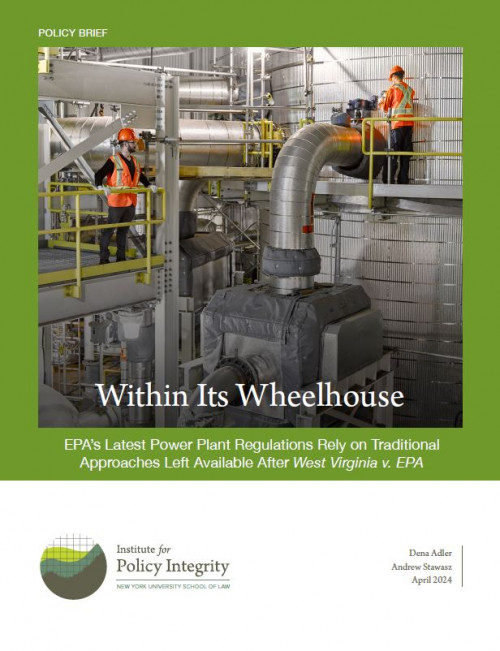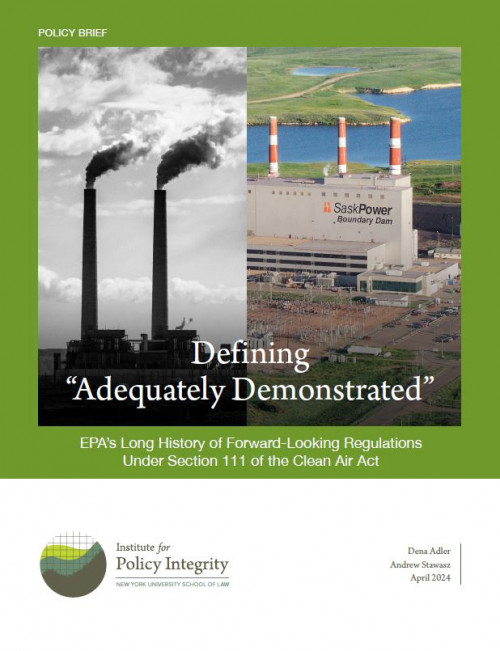-

The Social Cost of Greenhouse Gases: An Overview
A Primer on EPA’s Updated Values for Policymakers and Practitioners
In December 2023, EPA finalized updated values for the social cost of greenhouse gases (SC-GHG), following public comment and expert peer review. The agency derived these estimates using the best available science and economics, and the estimates represent a significant step forward in our ability to properly value climate effects. The brief is intended to introduce policymakers and practitioners to the SC-GHG, break down EPA's updated values, and explain why they represent a powerful tool that can streamline decisionmaking and policy analysis.
-
Within Its Wheelhouse
EPA’s Latest Power Plant Regulations Rely on Traditional Approaches Left Available After West Virginia v. EPA
In May 2023, EPA proposed new limits for greenhouse gas (GHG) emissions from certain fossil-fuel-fired power plants under Section 111 of the Clean Air Act. Some critics have suggested that EPA’s new rule triggers the major questions doctrine. Under that doctrine, a court should look skeptically on the agency action in extraordinary cases involving unprecedented and transformative applications of agency authority. But the major questions doctrine is inapplicable to EPA’s use of CCS in its proposed regulations. Rather than propose a new approach that would transform its exercise of statutory authority, EPA has embraced one of its most traditional and well-established regulatory practices: setting emission limits based on pollution controls that cause a regulated source to operate more cleanly. This policy brief details why EPA’s latest proposal to limit GHG emissions from power plants fits neatly within the bounds of the legal authority left intact after West Virginia. It then explains how states and operators retain flexibility to use emission trading and averaging programs to implement EPA’s regulations.
-
Defining “Adequately Demonstrated”
EPA’s Long History of Forward-Looking Standards Under Section 111 of the Clean Air Act
In May 2023, the Environmental Protection Agency (EPA) proposed new limits for greenhouse gas (GHG) emissions from certain fossil-fuel-fired power plants under Section 111 of the Clean Air Act. Section 111 requires EPA to set limits reflecting the emission reductions achievable by applying what the agency determines to be the “best system of emission reduction” (BSER) that “has been adequately demonstrated,” and that meets certain other statutory factors. This policy brief summarizes the legal framework of Section 111 (including the legislative history and caselaw relevant to understanding its technology-forcing nature), walks through how courts have interpreted “adequately demonstrated,” reviews EPA’s past use of Section 111 to drive technology improvements, and explains why a potential Supreme Court decision that eliminates or curtails Chevron deference (a legal doctrine providing deference to reasonable agency interpretations of ambiguous statutory language) would not affect the longstanding interpretation of “adequately demonstrated.”
-

The Climate Costs and Economic Benefits of LNG Export
Gas provides nearly a quarter of the world’s total energy supply. As part of that supply chain, gas is shipped between continents in the form of liquefied natural gas (LNG). The United States is now the world’s largest LNG exporter following a surge in gas exports since 2016, but these exports have generated controversy due to their climate effects.This policy brief provides an analysis to support an effort to balance the full range of impacts from LNG exports. Using DOE’s own published studies, we compare the climate cost per unit of LNG export to the economic benefit (measured using consumer welfare). We find that climate costs likely exceed economic benefits. While the precise difference depends on several factors, gross climate damages greatly exceed economic benefits under all scenarios evaluated. These findings provide useful insights as DOE prepares to re-evaluate the LNG export program.
-

Analytical Clarity
How Updated Climate-Damage Values and Discount Rates Will Affect Regulatory Analysis
Recently completed and draft guidance is ushering in updated practices for federal benefit-cost analysis. This policy brief examines the impact of two of the most significant upcoming changes: to the discount rate and the social cost of greenhouse gases.
Viewing all publications in Policy Briefs


